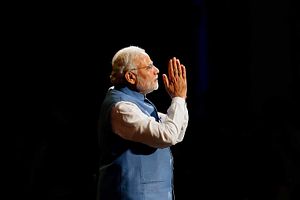Since taking office in 2014, Prime Minister Narendra Modi has become India’s most powerful political figure in a generation. He is successfully leveraging a mixture of vision, slogans, reforms, and party discipline for political success. He has surprised the global community by adopting a thoughtful, robust foreign policy. Yet his government suffers from policy limitations, often driven by the same rural politics that impacted his predecessors.
As we head toward India’s 2019 national election, Modi’s supporters are divided in terms of their hopes for the remainder of his term. Many would like him to use his growing authority to intensify the pace and depth of economic and social reforms. Others hope he will personally push a Hindu fundamentalist agenda. Simultaneously, the world waits to see what new foreign policy goals a stronger India will choose to pursue.
In the last 36 months, Modi has consolidated power within the Bharatiya Janata Party (BJP) and expanded his party’s reach with a string of successful state elections, while simultaneously devolving powers to India’s state governments. He is trying to replicate elements of his successful model of governance from his 12-year run as the chief minister of Gujarat — primarily by empowering key bureaucrats over political bosses in many ministries. He has avoided personally taking any decisions on the national level that would provoke fears of a Hindu nationalist agenda, while allowing junior regional party leaders to initiate such actions. His appetite for big policy steps is increasing, as evidenced by the November 2016 “demonetization” initiative. He has achieved notable reforms such as ending India’s “five year plans,” and initiated the creation of a stronger national market through the Goods and Services Tax, but also seen reforms of land and labor laws stymied in Parliament. And Modi has re-shaped India’s international relations, adopting a more “realpolitik” approach than any of his predecessors, although he remains reluctant to engage on many important global security issues.

































